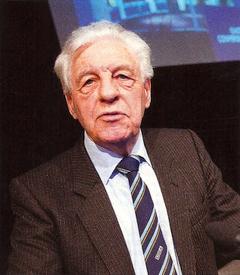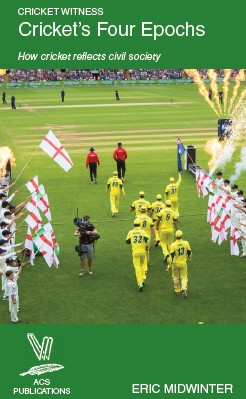
Eric Midwinter, the great cricket historian and former President of the ACS, died on 8 August. He was 93 and had been ill for a short time.
A distinguished social historian and policy maker, Professor of Education at Exeter University and the co-founder of the University of the Third Age, Eric was also a prolific and varied author, producing over 50 books on education, social reform, consumer advocacy, British comedy, literary history, football and cricket.
His cricket books, stretching back more than 40 years, include a biography of WG Grace, a study of cricket during the Second World War, and a history of county cricket.

In recent years, his output for ACS has been remarkably prolific, wide-ranging and erudite, touching on issues of social status and cricket (Class Peace), how cricket has always reflected civil society (Cricket’s Four Epochs), and how the game transformed at pace in the 19th century in line with wider changes in society (Cricket’s Revolution). During the same period he also wrote books on ‘clown cricket’ and ‘The Cricketing Dickens’ for Max Books.
A further ACS book on cricket and the church (Christianity at the Crease) will be published by the ACS in November, and articles by Eric have appeared in three of the last four editions of The Cricket Statistician.
Eric became President of the ACS in 1997, holding the post until 2004 and playing the role with distinction. In a note read out at the ACS’s Golden Jubilee lunch in 2023, he spoke of his surprise at being asked to be President and recalled fondly his involvement with the committee and its officers. He also discussed Cricket in My Life in a talk he was due to give at the 2020 AGM, which was published online when the Covid pandemic forced the meeting’s cancellation.
In 2019, Eric received the Brooke-Lambert Trophy; Andrew Hignell’s citation described him as ‘the doyen of cricket historians and statisticians’.
Receiving the award, Eric said that he had always seen himself as a social historian with an interest in cricket, rather than a cricket historian. But for many, it has been his ability to draw on his numerous other interests and see cricket in a wider context which has made his contribution to the game’s historical literature so stimulating and original.
Jeremy Lonsdale
